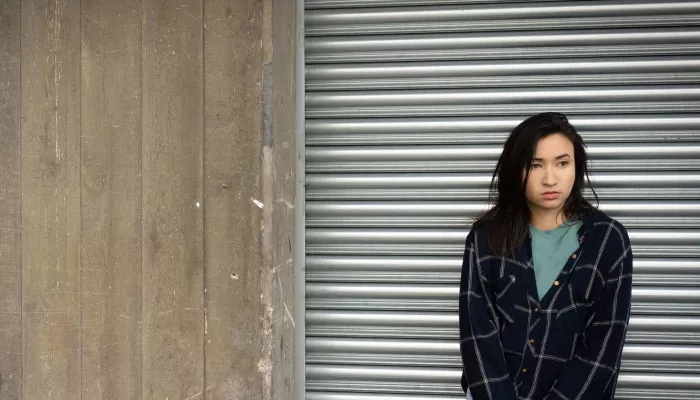How does youth homelessness affect women?
Despite the large number of women experiencing homelessness, there is a significant lack of women-specific homelessness services in England, with only 10 per cent of services providing female-only accommodation. Our research found that many homeless young women would prefer to be housed in women-only services. In particular, young women with experiences of domestic abuse or sexual exploitation by men often feel unsafe to stay in mixed accommodation.
Research has frequently shown that experiences of domestic abuse are highly prevalent among women experiencing homelessness. The Centrepoint Databank (2021) found that domestic violence was identified as the cause of homelessness for 15 per cent of homeless young women aged 16–24 – a figure that is five times larger than for young men Furthermore, findings from a systematic review of studies on youth homelessness and sexual exploitation highlight that young women regularly experience sexual assault, rape and fear of being sexually victimised while homeless.
Since 2010, 17 per cent of specialist Violence Against Women and Girls (VAWG) refuges in England have closed. Furthermore, Women’s Aid found that in 2019-2020, 57 per cent of referrals to refuges were rejected due to lack of space or capacity. With the lack of refuges and women-only accommodation, young women with experiences of domestic abuse are often housed in general needs mixed accommodation, which is unsuitable because they require greater support and safeguarding. Furthermore, if they feel unsafe being in mixed accommodation with unknown men, these young women may opt to stay in more familiar, unsafe environments, such as with an abusive partner.

Watch and listen to our podcast exploring women's unique experiences of homelessness
This is why we are calling for the Department for Levelling Up, Housing and Communities and local authorities to allocate more funding for specific homelessness provision, including women-only refuges and LGBTQ+ services, to accommodate for vulnerable young people’s individual needs. Furthermore, these accommodations should be designed with inclusivity in mind, and psychologically informed in order to best support vulnerable young people.
In addition to these inappropriate housing options, the research found the benefits system is leaving many vulnerable young women at risk of financial abuse. Couples that claim Universal Credit receive their benefits as a joint payment paid into the nominated bank account of one person as the ‘main claimant’. If one partner has sole control over the couple’s finances, they are able to restrict the other partner’s financial freedom and make them critically dependent. The government should remove joint claims so that young women are evaluated and paid independently of their partners.
While this new research constitutes a small sample of women with experiences of youth homelessness, those experiences highlighted are indicative of reports from stakeholders and previous literature. The women interviewed had a variety of different experiences such as motherhood, substance misuse, and domestic violence. The women also had varying beliefs, cultures, and backgrounds. Within this variety of circumstances, there was a commonality around safety and vulnerability.
Many vulnerable young women across the UK are falling through the cracks, and not getting the support they deserve. Steps must be made to ensure their safety and security. This research aims to be a part of that discussion – improving and preventing homelessness experiences for young women plays a key part in ending youth homelessness for good, and Centrepoint keen to encourage others to be part of this dialogue.

